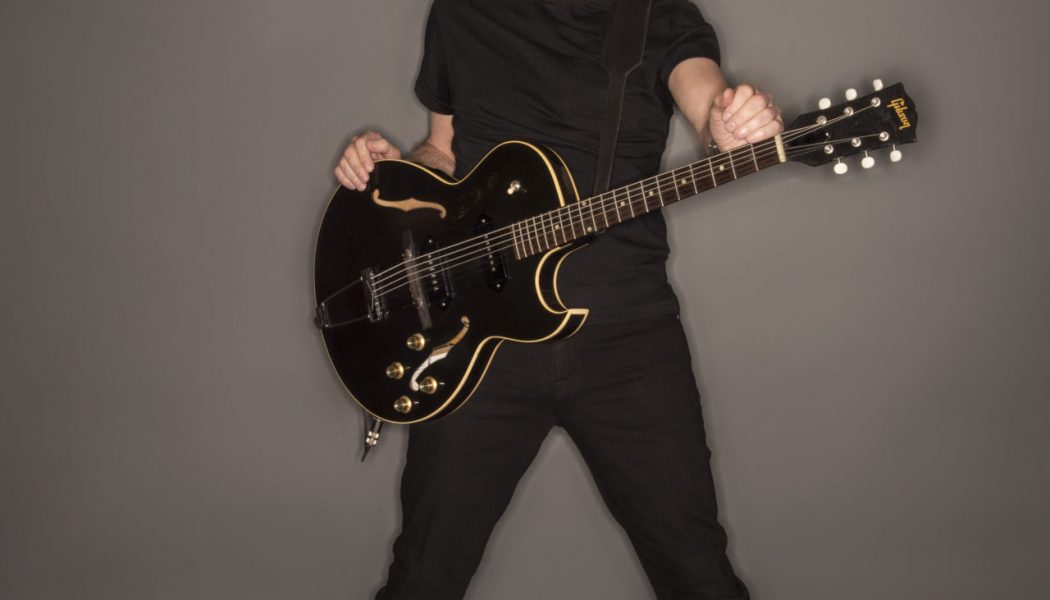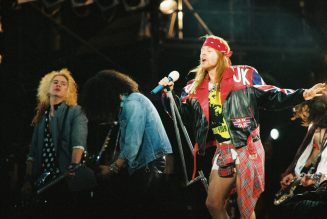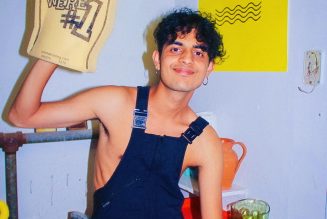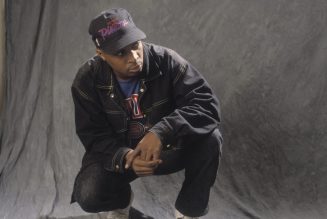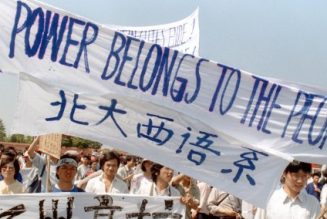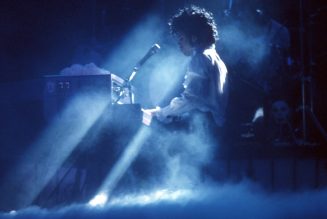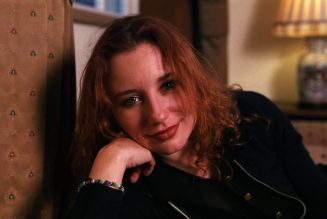George Thorogood has made a living performing other musician’s songs. He’s performed them so damn well we all think he’s the original artist. His self-described journey of “starting from the bottom and clawing to the middle” began once he got the heck out of Delaware. As he sang in “Bottom of the Sea,” Thorogood has “been all around the world.” He traveled cross-country for a shot at being in John Lee Hooker’s band becoming a street performer along the way. He lived in Boston. Has been performing in New Zealand and Australia and Europe for decades. He currently lives in Southern California.
Covering and mastering such songs as Bo Diddley’s “Who Do You Love” and John Lee Hooker’s version of “One Bourbon, One Scotch, One Beer” (which was originally written by Rudy Toombs in 1953 and initially performed by Amos Milburn), Thorogood makes no bones about where he stands when asked about why he didn’t write his own songs: “I’m not a songwriter.” And why blues songs? “My talent is pretty limited. I don’t really have the chops of Linda Ronstadt who can sing anything or a guitarist like Jeff Beck who can play anything.” But the fans don’t care. They just want to hear George masterfully play these blues songs, leaving them, as Chuck Berry first sang in 1957 and then Thorogood in 1986, “reelin’ and rockin.’”
In 2021, which is the 40th anniversary of his 50/50 Tour, where George Thorogood and the Destroyers performed 51 shows in 50 days, (yes, the numbers don’t add up, but he’ll explain), George and his band return to the stage for a 29-city North American and European tour. (This December, he’s also re-releasing the 27-track Live In Boston 1982: The Complete Concert.) Thorogood, 70, says he’ll “be playing the same songs” and is aware plans may change amid the pandemic.
“We might have to work smaller venues, but once the world is healthy, I think it’ll be an incredible reaction. Have you ever played in Minnesota or Wisconsin [note: he’s actually not this time around] in late May? It’s fantastic! Why? Everyone’s been cooked up in the house all winter. I think once you get out there, the reaction is gonna be extreme in a good way.”
That’s George for ya! The fans go crazy even in cities he’s not performing in.
What was it like growing up in Delaware?
It was like eating Wonder Bread with mayonnaise on it. It’s not Greenwich Village. It’s not Hollywood. It’s not San Francisco. It’s kind of a non. It got on Candid Camera. Remember Candid Camera? The show had a hoax where they bribed Pennsylvanians to say, “Delaware is closed today.” My father went, “Delaware is always closed!”
You also lived in Boston and currently in Southern California. How do the two cities compare?
There is no Boston, just like there is no LA. Boston is about two streets – it’s basically where Fenway Park is and that’s about it. LA is full of places, like the Valley. It’s really spread out. Living all these years I try to find where is this, and no, you’re in Hollywood now. And then you’re in West Hollywood. Now you’re in Sherman Oaks. Now you’re in Westwood. Now you’re in Brentwood. See? Where is LA? That’s how it was in Boston. New York City: you know you’re in New York City.
2021 is the 40th anniversary of your 50/50 tour. What stands out the most and can it be pulled off today?
It’s only 50 days, not 250. Lou Gehrig played 2,130 games in a row. The states on the East Coast are not as spread out, unlike going from Montana to Nebraska to Minnesota, so, that wasn’t that tough. To make it 51 shows, we did Baltimore in the afternoon and D.C. at night. (See, told you he’d explain.) Now if you can’t get it up for playing rock and roll every night, then you’re in the wrong business.
The one thing that does stick out is the 44th date. We played in Arkansas in this place called The Library. It seated about 100 people, maybe 120, and they called it The Library because it was filled with books. I think it used to be a library and was converted into a nightclub. The next night we played in New Orleans at the Superdome to 15, 20 thousand people and we had to go on after the Neville Brothers, before the Rolling Stones. Plus, I had a temperature of about 110. I had a cold the whole time I was on the 50/50 tour. My head was so clogged up that I couldn’t hear anything. I couldn’t see anything ‘cause they had airplane lights banging down on the stage. It was tough, I had to get through it. And that was the first night Mick Jagger came out to see us play. I was like, “No not now! I’m terrible. This isn’t working!”
What was Mick’s reaction to your show?
I don’t know! I didn’t ask him. But they said he was dancing as he was watching. He was moving around, getting into it. We played a bunch of dates with them down the road.
What were the Rolling Stones like?
They were more than friendly, very accommodating. It’s funny: those people, they have an image. I did a lot of shows with them in Europe and in the States. I never once hear any of the Rolling Stones utter a four-letter word. I saw no drugs, no marijuana, no nothing, all of them had great manners and they’re all pulling for us. They really wanted us to do good. Some of the Stones said, “let’s go out and see what these guys from Delaware are all about.” When I was around the Rolling Stones, I felt like I had walked into a Boy Scout camp. I hate to blow it for them, but that was my experience.
How do you keep up with the music industry these days?
Well, it’s hard to keep up with it anymore. There’s billions and billions of people and bands. It’s not like 1968 or even 1978 where a new album came out and it was a big buzz. Now, they’re releasing like a thousand albums a week, of all different kinds of artists. It takes me a while to catch up, so everyone who was big five, six, seven years ago, I’m just now starting to catch up. I’m a classic rock guy. I listen to new stuff and go right back to Steve Miller. Like we all do.
What music do you listen to today?
I just started listening to that lady from England with all those tattoos; she passed away recently.
Amy Winehouse?
Yeah, unbelievable. I couldn’t even put my finger on what it was like. It was like the first time I heard Robert Johnson. I’ve never heard anything like this. Now I know what the whole fuss is about with this person. I first heard Amy Winehouse’s music in an assembly at my daughter’s high school and I heard this one song come on and I said, “What is that sound? What is that music?” So, they told me who it was and was like I gotta get into this.
Do you believe in the myth about Robert Johnson selling his soul at the Crossroads?
Why not! Over the last 10, 15, 20 years a couple of pictures that they say is Robert Johnson were produced. They say this is him. And I’m saying, “Well, who verified this?” Someone who didn’t really know the man. Now, I have spent time with Robert Lockwood Jr. who was supposed to be the adopted son of Robert Johnson – he was buddies with Lockwood’s mom – and taught him how to play the guitar. So, at that time a picture existed. And a police sketch artist went to Lockwood to say let’s do it, and Lockwood wouldn’t do it. And they said, “why?” and Lockwood goes, “I don’t want to.”
And now a book is out about him. A very close friend of mine gave me the book and I said I don’t want to read it — eventually I’ll crack it and investigate, maybe I’ll pick it up in 10, 15 years. I like the idea that Robert is a mystery. That’s part of the charm. Some people even said that they didn’t even prove he really was dead. So, he sold his soul to the devil. Hey, if someone comes up with an offer for me to be able to play like that, I’d be tempted to take it.
Why do you cover other peoples’ music versus writing original songs?
You can’t go anywhere unless you write originals. People told me that so much I almost was gonna puke. Well, Linda Ronstadt and Joe Cocker do covers. The Stones are the same way on their first two or three records. Frank Sinatra didn’t write any of his material. Neither did Elvis Presley. I said that I could put together a record of no originals at all and I can make that album a hit. And that album was Moving on Over and it went gold. So, as long as the songs are good, people don’t care who wrote it. I mean, do you know the person who wrote the covers on Rolling Stones’ albums? No, you just like the song. So, yeah, we proved that dead in the water. I think what they meant was to really get critical acclaim, you gotta write your own stuff. Well, of course you do! But you gotta write good stuff.
What was it like to be a street performer in San Francisco?
It was terrible! It’s better to play at MSG with The Stones. It wasn’t out of choice, it was out of necessity. I was starving, I had no money, I had no skills or trade. I had a guitar. I did just enough to get something to eat maybe every two days or once a day. I wanted to be like Peter Wolf or John Hammond or Hound Dog Taylor — I wanted to get it on like that — but no record producers were walking up and down the street listening to me.
It was 1973. I was on my way to California because I wanted to meet John Lee Hooker and see if I could get a job playing in his band. Along the way, I got sidetracked and did a few gigs in Omaha and Denver. When I finally ended up in San Francisco, I visited Hooker. He was very nice to me, but I didn’t have it in me to say I want to be in your band and play guitar with you. I just had to take what I could get. That was my start.
Do you regret not asking to be in his band?
I was flabbergasted! He is so nice and very coooool. I can’t even explain it. He was the guru of the blues, this monster of the blues. I didn’t have it in me. We became friends years later and I spent a lot of time with him and did a video together, traveled with him, did benefits with him, but never got around to being in his band.
How did you come up with the name for your band?
I got this guy on the phone who ran a topless club and I thought maybe we could get a job and as luck will have it, he said we have a cancelation can you play tomorrow night. I said of course so he said, “what’s the name of your band?” and I remember there was a guy who played with Howlin’ Wolf who never spoke up, no one knew who he was so they called him The Destroyer. We bounced that name off each other. So, when the guy asked what’s the name of your band, I went, “uhhhh, The Destroyers.” He went, “any good?” I said, “we’re great!” Then the name stuck. We did a gig up in Boston one night and somebody said George Washington and the Delaware River. It’s nothing like ZZ Top or The Who. Police is a great name for a band because there are police all over the world. It’s great for merchandise. Destroyer looks good as a tattoo on a sailor’s chest.
Why do you perform so many songs about drinking?
They’re popular. Let’s make the record straight here: we’ve recorded 150 songs, three of them are about drinking, but only two of them I wrote, so when they say all your songs are about drinking, or most of them, no, it’s the ones played on the radio. The reason we do them is because the fans select it. I mean we play in a bar every night. They were hits before we did them. I heard Sonny Terry and Brian McGee doing it, and John Lee Hooker doing it. I said, “this is a popular song and we can make a rock hit out of this.” If J. Geils got a hold of it, they’d do the same thing. Popularity is what did it. We made our statement. We’re done with it. The world doesn’t need another drinking song.
Which version of “One Bourbon, One Scotch, One Beer” do you like the best?
I heard John Lee Hooker doing it live at the Cafe Au Go-Go. He did two sets. Each set he did “One Bourbon, One Scotch, One Beer.” Back in those days, the heyday of the blues, everybody sat, it was quiet, like in a temple listening to Muddy Waters. When John Lee Hooker played everybody was dancing. I said, “dancing to the blues? This is not done!” It was so revered. The one they danced to the most was “One Bourbon, One Scotch, One Beer” and it was all women. I said, that’s it! I’m getting a band together and performing that song.
What’s your favorite bourbon, scotch and beer?
My slogan is one bourbon, no scotch and one beer.
